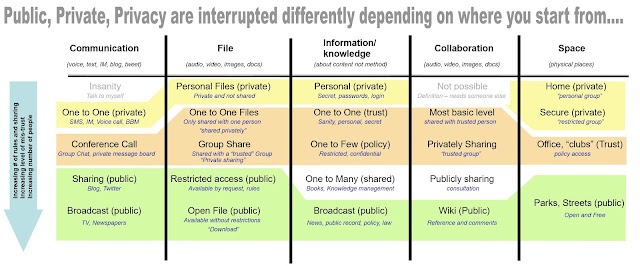Privacy, Identity and personal data are the new politics, religion andsex of after dinner fall outs
Ask a group of friends to define any of the following words:- private, privacy, trust, sharing, personal data, data, rights or context and whilst you may start the evening as friends; you may well end the evening questioning ideologies. Privacy, Identity and personal data have become the new politics, religion and sex conversation topics that we should not discuss. But why?
My personal view is that, just like politics, religion and sex, we all start from different points (knowledge and mood today), with varying expectations (outcomes) and personal experiences (crosses to bare). This opinion piece is about the different starting points and not expectations or personal experience; as we get to read about expectations from daily FUD (Fear, Uncertainty and Doubt) articles that form fabulous NEWS headlines, and personal experiences as well, they’re personal.
This opinion is not trying to convert or sway anyone from their trusted viewpoint; the purpose is to present a framework that enables us to talk about the different starting points and have an engaging debate and not conflict….
First Framework: Private is not one state.
If I start from a base of talking about FILES (audio, video, images, docs) or INFORMATION (content) when thinking about what is private and sharing, at the most basic level the files I create on my machine are PRIVATE. I am in control of the file, the content and it is shared with no-one. However if I start from a base of talking about COMMUNICATION (voice, text, IM, tweet, blog) and I restrict the communication to one other (trusted) person (one-to-one) then this level of conversation is PRIVATE. But unlike my FILES, this private is now shared.
To add confusion to what is “private”, we also define trusted sharing across files, collaboration, communication and information as private when we restrict the sharing to one person (or in some cases a very small group). This assumes that we also trust the medium by which we share.
The implication of this is that we struggle to define what Private is on it’s own unless we provide purpose, context and trust
Second Framework: Share is not one state
Share (sharing, shared, shares) like so many English words has a number of uses (noun and verb) and contexts. Shared comes with context and a dependency on the person (trust) to obey the rules/ processes/ methods under which the sharing took place. However, shared quickly enters the world of value and benefit of the beholder, which leads to breaches and the debates which surface as “in the public interest” and “the public is interested in.” In the COMMUNICATION and COLLOBORATION worlds sharing is a basic requirement and just like FILE and INFORMATION a level of trust is implied. However for collaboration the trust framework applied can be driven by requirement, skill, and delivery over and above established trust principles.
The implication is that Sharing introduces complexity of groups, levels of trust and policy. How is “Shared Privately” different from “Privately Shared?” Is the emphasis related to the trust or the content?
Third Framework: Public is not one state
So from private to public. Public in COMMUNICATION and INFORMATION terms is mainly about a one way conversation (broadcast), whereas if your centre of gravity is collaboration, Public is about anyone having the ability to add, collect, provide, edit, delete, improve or refine. Starting from a FILE, Public means access to.
The implication is that Public introduces contentions between ideologies of broadcast, access to and crowd source
Given that it is difficult to agree how to use Public, Private, Trust, Share within the defined words we can touch, I am not surprise that we are wrestling with Personal Data, which may be a subset of the information/knowledge column or its own unique new column as it needs some better defining of what Privacy means….
